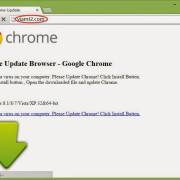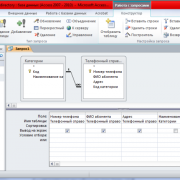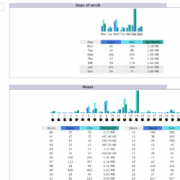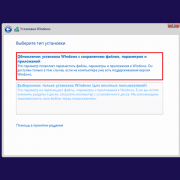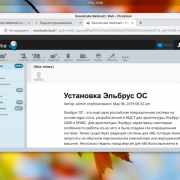How to use cefsharp (chromium embedded framework c#) in a winforms application
Содержание:
Version History
| Version | Downloads | Last updated | ||
|---|---|---|---|---|
|
84.4.10 |
1,437 | 8/26/2020 | ||
|
84.3.10-pre |
651 | 8/5/2020 | ||
|
83.4.20 |
17,743 | 7/2/2020 | ||
|
83.3.120-pre |
1,365 | 6/14/2020 | ||
|
81.3.100 |
19,864 | 5/23/2020 | ||
|
81.3.20-pre |
656 | 5/10/2020 | ||
|
79.1.360 |
53,743 | 2/10/2020 | ||
|
79.1.350 |
8,263 | 1/29/2020 | ||
|
79.1.310-pre |
1,256 | 1/22/2020 | ||
|
75.1.143 |
38,954 | 11/3/2019 | ||
|
75.1.142 |
51,685 | 9/9/2019 | ||
|
75.1.141 |
12,482 | 8/15/2019 | ||
|
75.1.140-pre01 |
1,200 | 7/28/2019 | ||
|
73.1.130 |
65,912 | 5/3/2019 | ||
|
73.1.120-pre01 |
2,751 | 4/10/2019 | ||
|
71.0.2 |
47,062 | 3/10/2019 | ||
|
71.0.1 |
4,194 | 3/6/2019 | ||
|
71.0.0 |
25,988 | 1/21/2019 | ||
|
71.0.0-pre01 |
1,969 | 1/2/2019 | ||
|
69.0.0 |
39,964 | 11/19/2018 | ||
|
67.0.0 |
38,799 | 9/5/2018 | ||
|
65.0.1 |
11,410 | 8/17/2018 | ||
|
65.0.0 |
16,847 | 7/13/2018 | ||
|
63.0.3 |
56,854 | 3/26/2018 | ||
|
63.0.2 |
14,882 | 3/8/2018 | ||
|
63.0.1 |
12,462 | 2/13/2018 | ||
|
63.0.0 |
6,372 | 2/8/2018 | ||
|
62.0.0-pre01 |
1,238 | 12/12/2017 | ||
|
57.0.0 |
106,683 | 4/18/2017 | ||
|
55.0.0 |
33,540 | 2/3/2017 | ||
|
53.0.1 |
9,243 | 12/22/2016 | ||
|
53.0.0 |
38,360 | 10/10/2016 | ||
|
51.0.0 |
32,454 | 7/14/2016 | ||
|
49.0.1 |
31,612 | 6/1/2016 | ||
|
49.0.0 |
12,009 | 5/3/2016 | ||
|
47.0.4 |
2,439 | 5/16/2016 | ||
|
47.0.3 |
11,372 | 2/25/2016 | ||
|
47.0.2 |
11,278 | 1/29/2016 | ||
|
47.0.0 |
3,806 | 1/22/2016 | ||
|
45.0.0 |
12,490 | 11/23/2015 | ||
|
43.0.1 |
4,559 | 10/29/2015 | ||
|
43.0.0 |
7,001 | 9/21/2015 | ||
|
41.0.1 |
6,224 | 8/4/2015 | ||
|
41.0.0 |
5,759 | 6/24/2015 | ||
|
39.0.2 |
3,853 | 5/29/2015 | ||
|
39.0.1 |
3,018 | 5/1/2015 | ||
|
39.0.0 |
10,316 | 4/8/2015 | ||
|
37.0.3 |
1,314 | 12/15/2015 | ||
|
37.0.1 |
802 | 4/20/2015 | ||
|
37.0.0 |
5,465 | 12/18/2014 | ||
|
33.0.2 |
6,609 | 10/27/2014 | ||
|
1.25.3 |
11,019 | 9/30/2013 |
CEF Levels and Syslog Severities
CEF defines 11 levels (0 to 10, lowest to highest); syslog defines
eight levels (7 to 0, debug to emerg). To align these two, we declare
CEF 10 to be equivalent to syslog (0), CEF 9 = syslog (1),
and so on to CEF 3 = syslog (7). We do not use CEF levels 2, 1,
or 0.
The logger has methods named after the syslog severities:
- or
- (the default level for calling )
It’s up to you to decide with your team on a set of meanings and stick
with them. For example, for logging
BrowserID events at Mozilla,
we use four levels as follows:
-
(10) Completely out of whack. Someone needs to look at
this. Harm to the application, user account, or system security
could have taken place. -
(8) Suspicious activity or application has non-validated
user input. Impact is not known. -
(6) Normal security application stuff, login failures,
password changes. -
(4) Normal app activity. Logins and various kinds of
transactions.
3.1. Using CEF (as Browser)
Now that our application has support for CefSharp, we just need to use it with code. Import CefSharp into your code using :
Now add the following method and create a class accessible variable as the browser (to use it in other methods) in your class :
And execute it after the InitializeComponent() function of your class (which normally is in the constructor):
Don’t forget to close the cef component in the event of your form :
Now your class should look like (note that the name of the project is ):
Now start your app (F5) or click on start in the toolbar, and you’ll see how Our Code World is loaded in your C# Winforms Application.

Congratulations ! You’ve just implemented CefSharp in your application at its most basic expression. We recommend you to keep reading the documentation of the framework and see how can you create more awesome things.
Overview
There are two versions of Chromium Embedded Framework: CEF 1 and CEF 3. Development of CEF 2 was abandoned after the appearance of the Chromium Content API.
CEF 1 is a single-process implementation based on the Chromium WebKit API. It is no longer actively developed or supported.
CEF 3 is a multi-process implementation based on the Chromium Content API and has performance similar to Google Chrome. It uses asynchronous messaging to communicate between the main application process and one or more render processes (Blink + V8 JavaScript engine). It supports PPAPI plugins and extensions, both internal (PDF viewer) or externally loadable.
The single-process run mode is not supported, but still present; currently is being used for debugging purposes only.
On March 16, 2019, the CEF version numbering changed with the release of CEF 73.1.3+g46cf800+chromium-73.0.3683.75. The previous release on March 14, 2019 was CEF 3.3683.1920.g9f41a27. Both of these releases were based on Chromium 73.0.3683.75, however the new version numbering has the major number the same as the Chromium major version number it is based on.
CEF comes with a sample application called CefClient that is written in C++ using WinAPI, Cocoa, or GTK (depending on the platform) and contains demos of various features. Newer versions include a sample application called CefSimple that, along with an accompanying tutorial, show how to create a simple application using CEF 3.
Documentation can be found in the header files located in the «include» directory and on wiki pages.
Syslog Transports
By default, uses a udp syslog transport. You can configure
the transport with the following options to the constructor:
-
: The name of your app to appear in the syslog. Default
is , which you probably want to change. -
: One of the facility names or numbers as defined
in RFC 3164. Default is . -
: IP address of the syslog service. Default is
. -
: Port for the syslog service. Default is .
-
: A function taking two arguments: and
. By default, this is a udp4 transport using the address
and port described above.
Within the transport function, address and port are available as
and . You could specify a transport using
some custom service like so:
var config = {
syslog_address: '192.168.1.42',
syslog_port: 9876,
syslog_transport: function(message, callback) {
myCustomService.send(
new Buffer(message),
this.port,
this.address,
callback
);
}
};
Version History
| Version | Downloads | Last updated | ||
|---|---|---|---|---|
|
84.4.10 |
665 | 8/26/2020 | ||
|
84.3.10-pre |
354 | 8/5/2020 | ||
|
83.4.20 |
10,781 | 7/2/2020 | ||
|
83.3.120-pre |
488 | 6/14/2020 | ||
|
81.3.100 |
13,824 | 5/23/2020 | ||
|
81.3.20-pre |
354 | 5/10/2020 | ||
|
79.1.360 |
46,338 | 2/10/2020 | ||
|
79.1.350 |
4,946 | 1/29/2020 | ||
|
79.1.310-pre |
910 | 1/22/2020 | ||
|
75.1.143 |
40,226 | 11/3/2019 | ||
|
75.1.142 |
19,838 | 9/9/2019 | ||
|
75.1.141 |
9,636 | 8/15/2019 | ||
|
75.1.140-pre01 |
970 | 7/28/2019 | ||
|
73.1.130 |
56,721 | 5/3/2019 | ||
|
73.1.120-pre01 |
506 | 4/10/2019 | ||
|
71.0.2 |
29,839 | 3/10/2019 | ||
|
71.0.1 |
2,245 | 3/6/2019 | ||
|
71.0.0 |
22,639 | 1/21/2019 | ||
|
71.0.0-pre01 |
1,706 | 1/2/2019 | ||
|
69.0.0 |
18,404 | 11/19/2018 | ||
|
67.0.0 |
44,605 | 9/5/2018 | ||
|
65.0.1 |
35,504 | 8/17/2018 | ||
|
65.0.0 |
18,773 | 7/13/2018 | ||
|
63.0.3 |
51,592 | 3/26/2018 | ||
|
63.0.2 |
8,198 | 3/8/2018 | ||
|
63.0.1 |
5,404 | 2/13/2018 | ||
|
63.0.0 |
4,139 | 2/8/2018 | ||
|
62.0.0-pre01 |
1,382 | 12/12/2017 | ||
|
57.0.0 |
86,165 | 4/18/2017 | ||
|
55.0.0 |
26,261 | 2/3/2017 | ||
|
53.0.1 |
7,409 | 12/22/2016 | ||
|
53.0.0 |
49,388 | 10/10/2016 | ||
|
53.0.0-pre01 |
818 | 9/15/2016 | ||
|
51.0.0 |
18,437 | 7/14/2016 | ||
|
49.0.1 |
54,243 | 6/1/2016 | ||
|
49.0.0 |
6,002 | 5/3/2016 | ||
|
47.0.4 |
2,662 | 5/16/2016 | ||
|
47.0.3 |
27,043 | 2/25/2016 | ||
|
47.0.2 |
4,467 | 1/29/2016 | ||
|
47.0.0 |
1,724 | 1/22/2016 | ||
|
45.0.0 |
22,150 | 11/23/2015 | ||
|
43.0.1 |
3,509 | 10/29/2015 | ||
|
43.0.0 |
5,236 | 9/21/2015 | ||
|
41.0.1 |
7,546 | 8/4/2015 | ||
|
41.0.0 |
6,952 | 6/24/2015 | ||
|
39.0.2 |
2,368 | 5/29/2015 | ||
|
39.0.1 |
3,235 | 5/1/2015 | ||
|
39.0.0 |
18,449 | 4/8/2015 | ||
|
37.0.3 |
829 | 12/15/2015 | ||
|
37.0.1 |
601 | 4/20/2015 | ||
|
37.0.0 |
5,924 | 12/18/2014 | ||
|
33.0.2 |
3,816 | 10/27/2014 | ||
|
1.25.8 |
1,759 | 2/12/2015 | ||
|
1.25.7 |
7,655 | 2/5/2014 | ||
|
1.25.5 |
2,384 | 10/2/2013 | ||
|
1.25.4 |
1,191 | 9/4/2013 | ||
|
1.25.3 |
2,673 | 8/14/2013 | ||
|
1.25.2-perlun0 |
777 | 6/17/2013 |
[править] Adjacency Table
R1#show adjacency detail
Protocol Interface Address
IP FastEthernet0/0 100.0.0.2(7)
0 packets, 0 bytes
epoch 0
sourced in sev-epoch 0
Encap length 14
CA0111480008CA00114800080800
ARP
Строка CA0111480008CA00114800080800 читается следующим образом:
CA0011480008 — это source мак-адрес интерфейса, через который будет отправляться пакет на 100.0.0.2:
R1#sh int fa 0/0 | i addr Hardware is i82543 (Livengood), address is ca00.1148.0008 (bia ca00.1148.0008) Internet address is 100.0.0.1/30
CA0111480008 — это destenation мак-адрес ca01.1148.0008:
R2#sh int fa 0/0 | i addr Hardware is i82543 (Livengood), address is ca01.1148.0008 (bia ca01.1148.0008) Internet address is 100.0.0.2/30
0800 — это EtherType (в данному случае у нас это IPv4 0x0800).
Типы файлов CEF
Ассоциация основного файла CEF
.CEF
| Формат файла: | .cef |
| Тип файла: | Class Action Gradebook Elementary File |
Файл CEF представляет собой файл данных, сохраненных в классе реестром, задания и оцениваемые результаты, связанные с классом действий, Зачетная книжка программы, используемой преподавателями для записи начальных классов школы.
| Создатель: | Richard Stott |
| Категория файла: | Файлы данных |
| Ключ реестра: | HKEY_CLASSES_ROOT\.cef |
Программные обеспечения, открывающие Class Action Gradebook Elementary File:
Class Action Gradebook «Elementary Edition», разработчик — Richard Stott
Совместимый с:
| Windows |
Ассоциации других файлов CEF
.CEF
| Формат файла: | .cef |
| Тип файла: | CenturionMail Encrypted Package |
CEF является зашифрованный архив, созданный CenturionMail, программа используется для шифрования сообщений электронной почты и вложений. Пароль требуется извлечь из архива.
| Создатель: | Open Source |
| Категория файла: | Зашифрованные файлы |
Программы, открывающие файлы CenturionMail Encrypted Package :
CenturionMail, разработчик — Open Source
Совместимый с:
| Windows |
.CEF
| Формат файла: | .cef |
| Тип файла: | Adobe Illustrator Compact Embedded Font File |
CEF представляет собой компактный встроенный файл шрифта, созданный Adobe Illustrator, редактор на основе вектора для Microsoft Windows и операционных систем Apple Mac OS X.
| Создатель: | Adobe Systems Incorporated |
| Категория файла: | Файлы шрифтов |
Программы, открывающие файлы Adobe Illustrator Compact Embedded Font File :
Adobe Illustrator CC, разработчик — Adobe Systems Incorporated
Совместимый с:
| Windows |
| Mac |
CEF file format
Each row has the same number of tab-separated fields, equal to . In other words, the entire file is a rectangular tab-delimited matrix, with at least seven columns. CEF file readers should accept CEF files that have less than the required number of fields in any row, and the missing fields should be interpreted as empty strings (but empty strings should not be interpreted as zeros; thus zeros must always be explicitly represented as ‘0’). CEF file writers should always generate a rectangular tab-delimited matrix.
Each line is terminated by a single newline character: . CEF file writers should always generate lines ending in a single , but readers should silently ignore any number of adjacent newline and carriage return characters. This makes it a little easier to generate CEF files manually, e.g. in Excel.
The first row of values defines the file structure. It begins ‘CEF’, followed by header count, row attribute count, column attribute count, row count, column count, and the value.
This is followed by header lines, which are name-value pairs, with the name in the first column and the value in the second. There are no restrictions on either the names or the values. The order of headers is not necessarily preserved when CEF files are read and written. There can be multiple headers with the same name.
Next, the column attributes are given, each in a single row with an offset of . Finally, the rows are given, starting with row attributes, and followed by the values of the main matrix. Values are represented in text as decimal floating-point numbers in scientific notation, with optional exponent (e.g. , or ; the regex is ). Values must fit in a 32-bit IEEE-754 floating point number.
The order of headers, row and column attributes is not significant and need not be preserved. Of course, the order of the values of row and column attributes is significant, and must be preserved.
Example of a file with 1 header, 4 Row Attributes, 2 Column Attributes, 345 Rows, 123 Columns. The last number (0) in the first row is the value, currently unused.
| CEF | 1 | 4 | 2 | 345 | 123 | |
| Header name | Header value | |||||
| Sex | Male | Female | ||||
| Age | P22 | P28 | ||||
| Gene | Chromosome | Position | Strand | |||
| Actb | 2 | 12837184 | + | 11 | 24 | |
| Nkx2-1 | 17 | 33432 | — | 41 | ||
| … |
Note that a CEF file can have zero row attributes, zero column attributes, and even zero rows or columns (in any combination). A CEF file without data, but with only row attributes, can be a useful way of storing annotations. Such a file can be joined to a data file to add the annotation to the data file.
Резюме файла CEF
Файлы CEF связаны с три типом (-ами) файлов, и их можно просматривать с помощью Class Action Gradebook «Elementary Edition», разработанного Richard Stott. В целом, этот формат связан с три существующим (-и) прикладным (-и) программным (-и) средством (-ами). Обычно они имеют формат Class Action Gradebook Elementary File.
Эти файлы классифицируют на Data Files, Encoded Files и Font Files. Основная часть файлов относится к Data Files.
Файлы CEF были обнаружены на платформах Windows и Mac. Они подходят для настольных ПК (и мобильных устройств).
Рейтинг популярности данных файлов составляет «Низкий» и они обычно не используются.
1) Create a basic Winforms App and add CefSharp using NuGet package
Proceed to create a Winforms application as you usual do it targetting the latest version of .NET Framework, nothing difficult isn’t?. Before procced be sure that your machine has installed :
- CefSharp 45.0 and later requires VC 2013 Redistributable Package x86 be installed.
- Earlier versions require VC 2012 Redistributable Package x86.
Otherwise, you’ll find errors like :
Now after the creation, add CefSharp. To add CefSharp, go to the Solution Explorer on the Top Right of Visual Studio, then right click on your app (under the solution) and select Manage NuGet Packages.
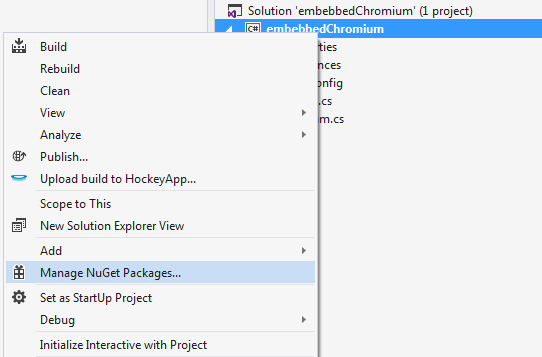
When the search menu appears, type , select the WinForms distributtion and install it.
As with every version of Visual Studio, the interface may vary, just be sure to install a distribution of CefSharp.WinForms by The CefSharp located in the nuget.org Package source, in this example we’re using Visual Studio 2015

Follow the installation setup (accept therms and install). During the installation you should see related information about the process in the console :
Everybody loves succesfully messages, do you ? I do !
Important before continue: Normally with the latest version of CefSharp, after installing the Nuget package is recommendable to close Visual Studio completely and then reopening (as this ensures your references show up and you have full intellisense), otherwise you’ll end up with the error:
The type or namespace name ‘Cefsharp’ could not be found (are you missing a using directive or an assembly reference?)

[править] FIB
Forwarding Information Base (FIB) или CEF Table — таблица для быстрой пересылки пакетов. Строится на основе Routing Table и Adjacency Table. Adjacency Table в свою очередь строится на основе ARP Table. Различают 2 вида CEF — Software CEF (можно увидеть на ISR G1/G2 и 7200) и Hardware CEF (можно увидеть на 6500/7600, Nexus 7000 и ASR9000). Hardware CEF — это когда построенная FIB хранится в быстрой памяти TCAM (Ternary Content Addressable Memory). Итого FIB — это таблица, содержащая маршрут, исходящий интерфейс и L2 destination.
|
Вывод и параметры команд, которые относятся к CEF, могут отличаться в зависимости от версии IOS и модели оборудования. Но, как правило, команды просмотра начинаются на show cef, show ip cef, show adjacency |
[править] Просмотр информации
dyn1# sh ip cef Prefix Next Hop Interface 0.0.0.0/0 drop Null0 (default route handler entry) 0.0.0.0/32 receive 192.168.1.0/24 attached Null0 192.168.1.0/30 attached FastEthernet1/0 192.168.1.0/32 receive 192.168.1.1/32 receive 192.168.1.2/32 192.168.1.2 FastEthernet1/0 192.168.1.3/32 receive 192.168.1.4/30 192.168.1.2 FastEthernet1/0 192.168.1.8/30 192.168.1.2 FastEthernet1/0 192.168.6.0/24 192.168.1.2 FastEthernet1/0 192.168.7.0/24 192.168.1.2 FastEthernet1/0 192.168.8.0/24 192.168.1.2 FastEthernet1/0 192.168.9.0/24 192.168.1.2 FastEthernet1/0 192.168.10.0/24 192.168.1.2 FastEthernet1/0 192.168.11.0/24 192.168.1.2 FastEthernet1/0 192.168.13.0/24 attached FastEthernet2/0 192.168.13.0/32 receive 192.168.13.1/32 receive 192.168.13.255/32 receive 192.168.14.0/24 192.168.1.2 FastEthernet1/0 192.168.15.0/24 192.168.1.2 FastEthernet1/0 192.168.20.0/24 attached FastEthernet0/0 192.168.20.0/32 receive 192.168.20.1/32 receive 192.168.20.8/32 192.168.20.8 FastEthernet0/0 192.168.20.9/32 192.168.20.9 FastEthernet0/0 192.168.20.255/32 receive 192.168.21.0/24 192.168.1.2 FastEthernet1/0 192.168.111.0/24 192.168.1.2 FastEthernet1/0 192.168.112.0/24 192.168.1.2 FastEthernet1/0 197.1.0.0/16 attached Null0 197.1.1.0/24 attached Loopback0 197.1.1.0/32 receive 197.1.1.1/32 receive 197.1.1.255/32 receive 197.1.8.0/24 attached Loopback1 197.1.8.0/32 receive 197.1.8.1/32 receive 197.1.8.255/32 receive 199.1.1.0/24 attached Loopback3 199.1.1.0/32 receive 199.1.1.1/32 receive 199.1.1.255/32 receive 199.2.2.0/24 192.168.1.2 FastEthernet1/0 199.2.2.2/32 192.168.1.2 FastEthernet1/0 199.3.3.0/24 192.168.1.2 FastEthernet1/0 199.3.3.3/32 192.168.1.2 FastEthernet1/0 199.4.4.0/24 192.168.1.2 FastEthernet1/0 199.4.4.4/32 192.168.1.2 FastEthernet1/0 224.0.0.0/4 drop 224.0.0.0/24 receive 255.255.255.255/32 receive
dyn1# show adjacency
Protocol Interface Address
IP FastEthernet1/0 192.168.1.2(43)
IP FastEthernet0/0 192.168.20.8(5)
IP FastEthernet0/0 192.168.20.9(5)
dyn1# show adjacency detail
Protocol Interface Address
IP FastEthernet1/0 192.168.1.2(43)
57 packets, 7963 bytes
00163E010101
00163E01001D0800
ARP 03:04:50
Epoch: 0
IP FastEthernet0/0 192.168.20.8(5)
9 packets, 378 bytes
00163E0107C1
00163E0100010800
ARP 01:40:02
Epoch: 0
IP FastEthernet0/0 192.168.20.9(5)
0 packets, 0 bytes
00163E0108C1
00163E0100010800
ARP 01:41:43
Epoch: 0
Очистить Cisco Express Forwarding adjacency table:
clear adjacency
dyn1#show cef interface fa0/0 FastEthernet0/0 is up (if_number 3) Corresponding hwidb fast_if_number 3 Corresponding hwidb firstsw->if_number 3 Internet address is 192.168.20.1/24 ICMP redirects are always sent Per packet load-sharing is disabled IP unicast RPF check is disabled Inbound access list is not set Outbound access list is not set Hardware idb is FastEthernet0/0 Fast switching type 1, interface type 18 IP CEF switching enabled IP Fast switching turbo vector IP Normal CEF switching turbo vector Input fast flags 0x0, Input fast flags2 0x0, Output fast flags 0x0, Output fast flags2 0x0 ifindex 1(1) Slot 0 Slot unit 0 Unit 0 VC -1 Transmit limit accumulator 0x0 (0x0) IP MTU 1500
На коммутаторе (hardware Layer 3-switching adjacency node):
show mls cef adjacency
router(config-if)# ip load-sharing <per-packet|per-destination>


